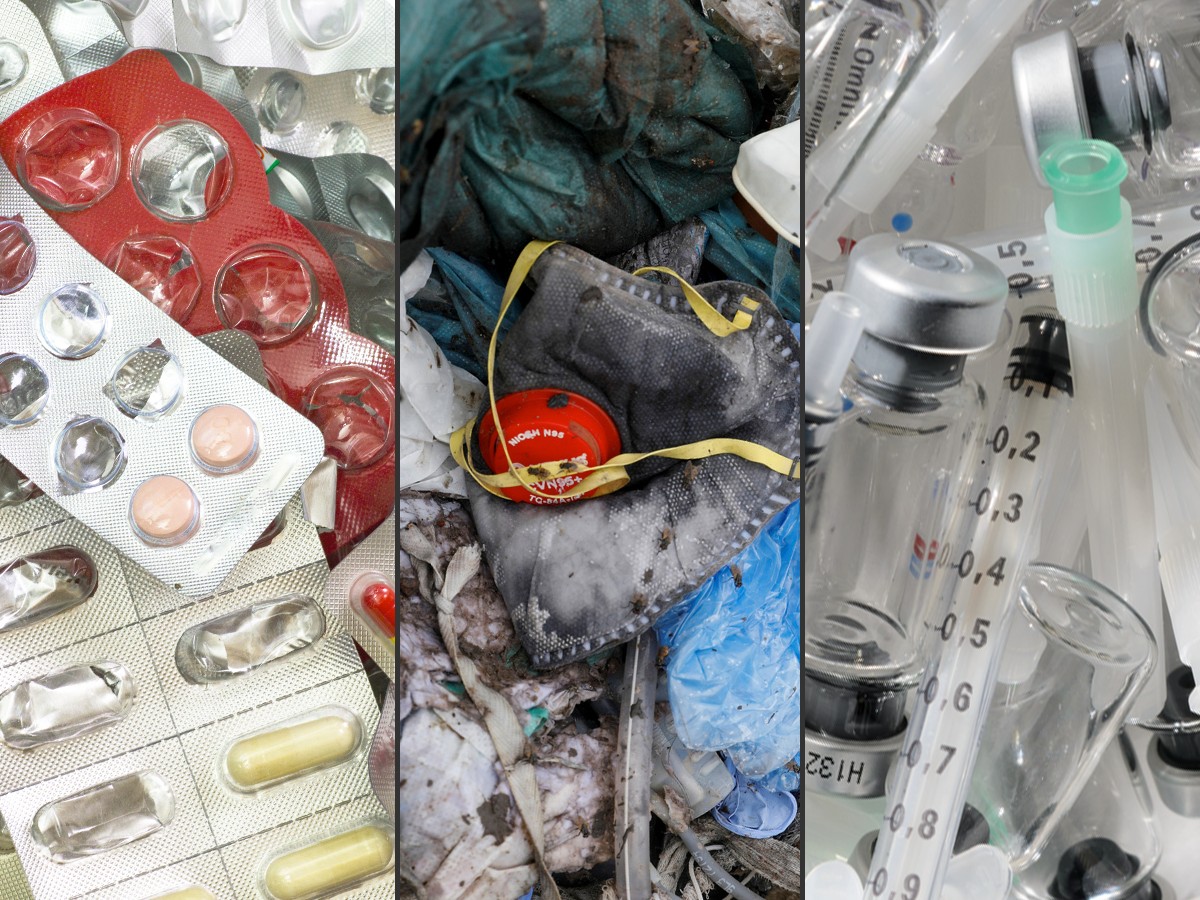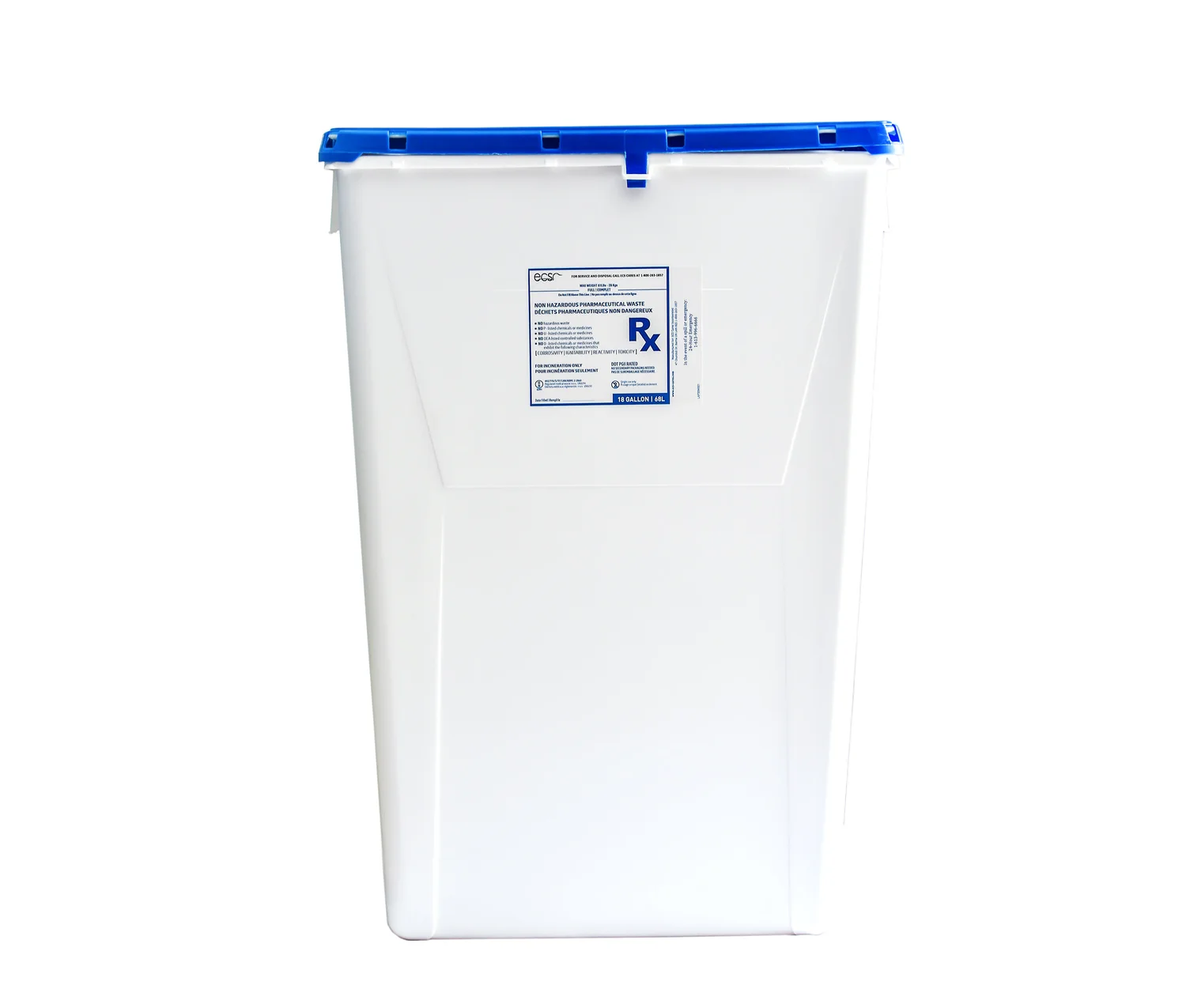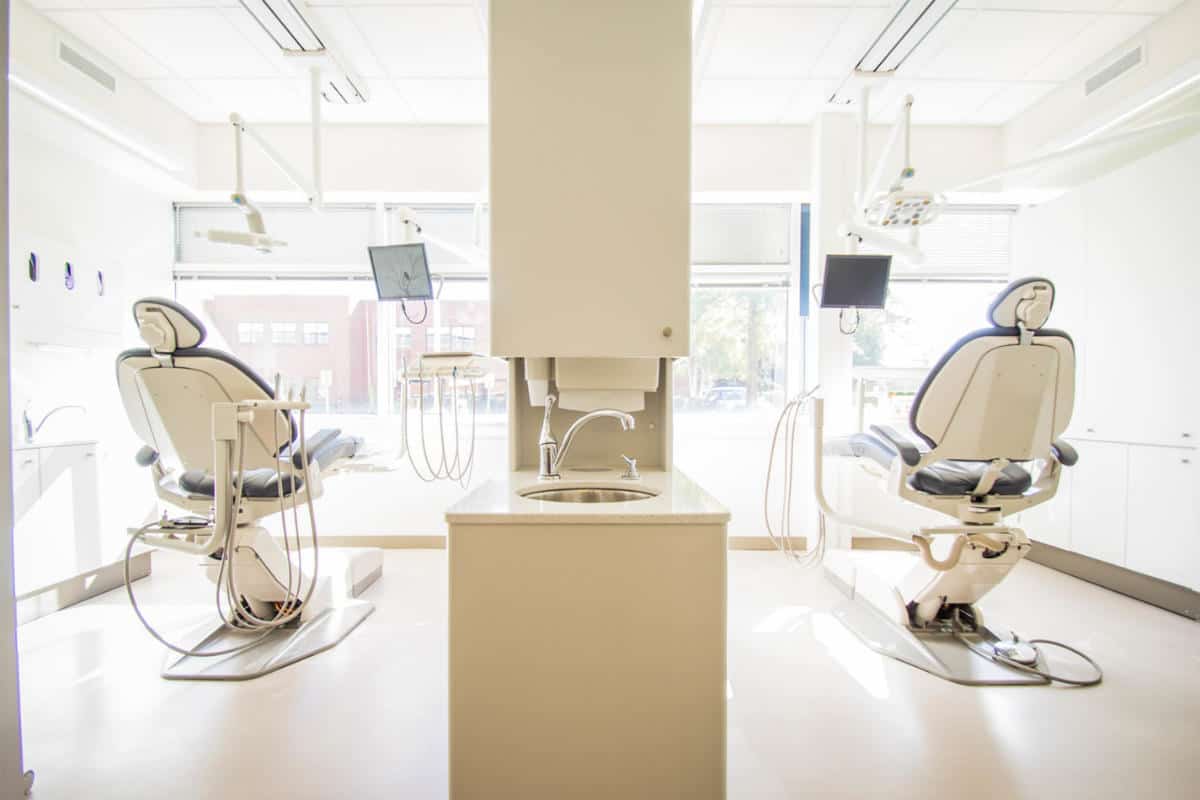What Is Regulated Waste? Secure Waste Explains With Expert Solutions For Regulated Waste Management
Have you ever wondered what regulated waste truly entails?
You’re not alone; many have pondered this question.
At Secure Waste, we understand the importance of distinguishing between ordinary trash and regulated waste, which encompasses items that require special handling and disposal due to their potential risk to public health and safety.
In essence, regulated waste refers to materials not classified as regular refuse.
Our core expertise lies in regulated medical waste management, a vital aspect of our operations that underscores our commitment to safe and responsible disposal practices.
Regulated medical waste, often called medical or biohazard disposal, includes sharps, contaminated materials, and other substances that pose a threat if not properly managed.
Now, let’s examine the significant aspects of regulated waste disposal and its crucial role in safeguarding our communities.
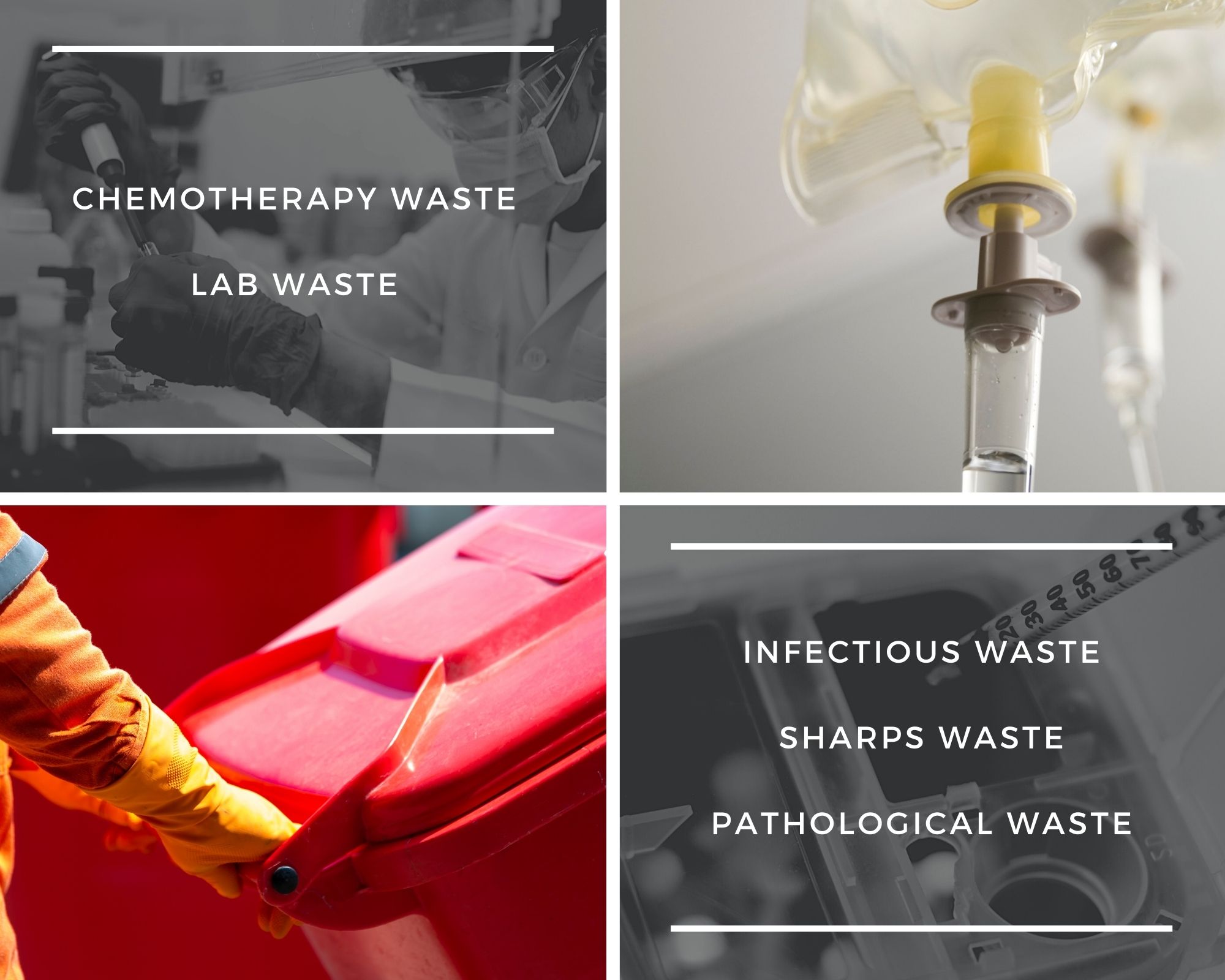
Secure Waste specializes in the safe and reliable disposal of medical waste for healthcare providers in Maryland Virginia and Washington DC We prioritize adherence to regulations and ensure that all healthcare waste is managed correctly Please get in touch with us for dependable solutions to your medical waste disposal needs
Regulated Waste: Understanding Its Importance and Categories
Regulated waste encompasses a range of materials deemed to pose a significant risk to human health and the environment, necessitating rigorous handling and disposal regulations.
Established by government agencies—primarily the Environmental Protection Agency (EPA)these regulations are imperative to ensure safe, efficient, and environmentally sound waste management practices.
Categories of Regulated Waste:
- Regulated Medical Waste: This category includes items contaminated with blood, bodily fluids, or other potentially infectious materials.
It features sharps like needles and scalpel blades, which demand precise disposal methods to prevent exposure and potential infection. Additionally, this category covers gauze, surgical instruments, and pathological waste, which consists of human tissues, organs, and body parts.
These materials require meticulous handling to mitigate serious health risks associated with improper disposal.
- Regulated Hazardous Waste: Hazardous waste encompasses many materials that pose significant dangers when not managed correctly.
This category includes various toxic chemicals, heavy metals, pesticides, and batteries that can leach into soil and water, threatening human health and the delicate balance of ecosystems.
The management of such waste is stringently governed to prevent accidental exposure and environmental contamination, emphasizing the importance of protective measures in waste handling.
- Radioactive Waste: A specialized segment of waste, radioactive materials can remain hazardous for thousands of years, necessitating the utmost care in disposal.
Handling radioactive waste requires strict adherence to specialized protocols and safety measures due to the grave health risks it presents when mismanaged.
Facilities that deal with this type of waste must comply with rigorous regulatory standards to prevent contamination and safeguard public health.
- Universal Waste: Universal waste includes commonly used hazardous items, such as batteries, certain pesticides, and mercury-containing devices, like thermostats and fluorescent bulbs.
This category aims to simplify the disposal process for widely used hazardous materials, promoting effective recycling and safe disposal practices while protecting public health and the environment from potential harm.
- Asbestos Waste: Materials containing asbestos are notorious for their severe health risks, including lung disease and various forms of cancer.
Given the catastrophic implications of exposure, the handling and disposal of asbestos waste are tightly regulated.
Specialized procedures must be enforced to safely contain and remove asbestos from buildings and sites, ensuring no harmful fibers are released into the environment.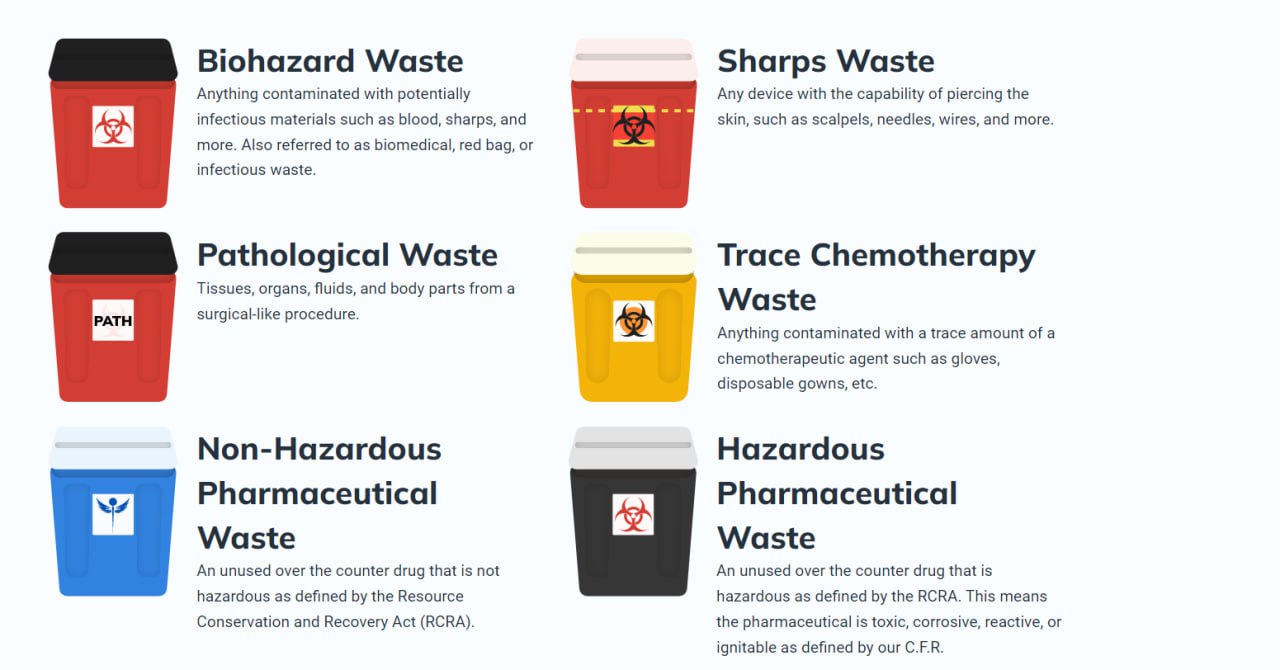
Understanding the regulations for healthcare waste disposal in Maryland Virginia and Washington DC is crucial for ensuring safety and proper handling Each of these areas has specific guidelines for managing healthcare waste effectively Healthcare facilities must comply with these regulations to protect public health and the environment Adhering to proper disposal methods is critical in preventing contamination and ensuring that hazardous materials are handled responsibly
Key Characteristics of Regulated Waste
- Potential for Harm: Regulated waste, due to its hazardous, infectious, or toxic nature, can present substantial risks to human beings, animals, and the environment.
The disastrous effects of improper management can lead to severe health crises or catastrophic ecological fallout. - Specific Handling Requirements: Regulations detail comprehensive guidelines regarding regulated waste storage, transportation, and disposal.
These protocols minimize risks and ensure safe handling procedures are followed at every stage, from generation to final disposal. - Oversight and Enforcement: Government agencies are critical in overseeing regulated waste management, ensuring compliance with established standards.
These agencies work tirelessly to uphold public health and environmental safety through regular inspections and enforcement.
A comprehensive understanding of the complex nature of regulated waste and adherence to its management protocols is vital for protecting our communities and ecosystems from potential hazards.
By recognizing the importance of proper waste management, we can foster a safer and healthier environment for future generations.
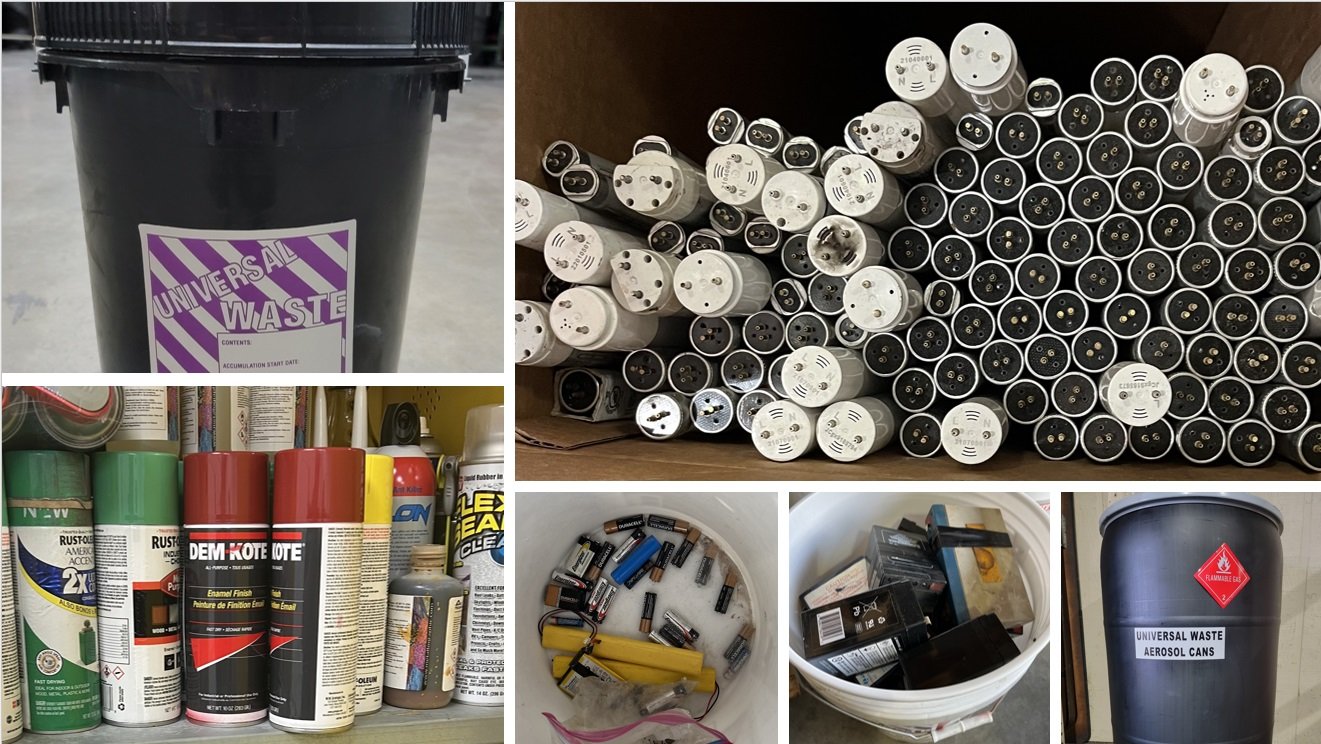
In conclusion
Now that you have a more comprehensive understanding of Regulated waste disposal, don’t hesitate to contact Secure Waste.
We provide reliable, compliant, eco-friendly medical waste disposal solutions for your facility’s needs.
We have expertise in biomedical, hazardous waste, and Sharps container disposal. In addition, we provide customized waste management plans, including secure collection and transport, and sustainable disposal practices.
Contact us today for a FREE Waste Assessment, or request a quote online!
**Disclaimer** This information is provided for reference purposes only and should not be considered as legal advice or factual information at the time of your reading. Regulations frequently change and can vary from state to state. We encourage you to contact your local regulatory authorities or Secure Waste directly for the most current information. Please note that Secure Waste is not liable, in part or in whole, for any information contained on this page or website.
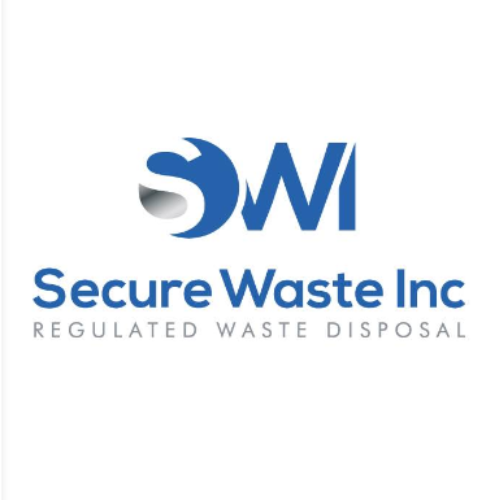
Expert Medical Waste Management: With over 25 years of industry experience, Secure Waste is a trusted local leader in hazardous and biohazardous waste disposal across Maryland, Virginia, and Washington, D.C. Specializing in medical waste management, sharps needle disposal, and biohazard waste removal, the company ensures full compliance with federal, state, and local regulations while prioritizing environmental sustainability.
The company also offers additional services, including secure document shredding and sharps container sales, providing comprehensive solutions for healthcare facilities and businesses. Our cost-effective services help clients maintain regulatory compliance without unexpected costs.
With a commitment to customer satisfaction, Secure Waste offers tailored waste management plans that align with industry best practices. Their team of experts provides reliable, timely, and compliant services, making them the preferred choice for medical waste disposal. For a free waste quote or more information, visit www.securewaste.net
